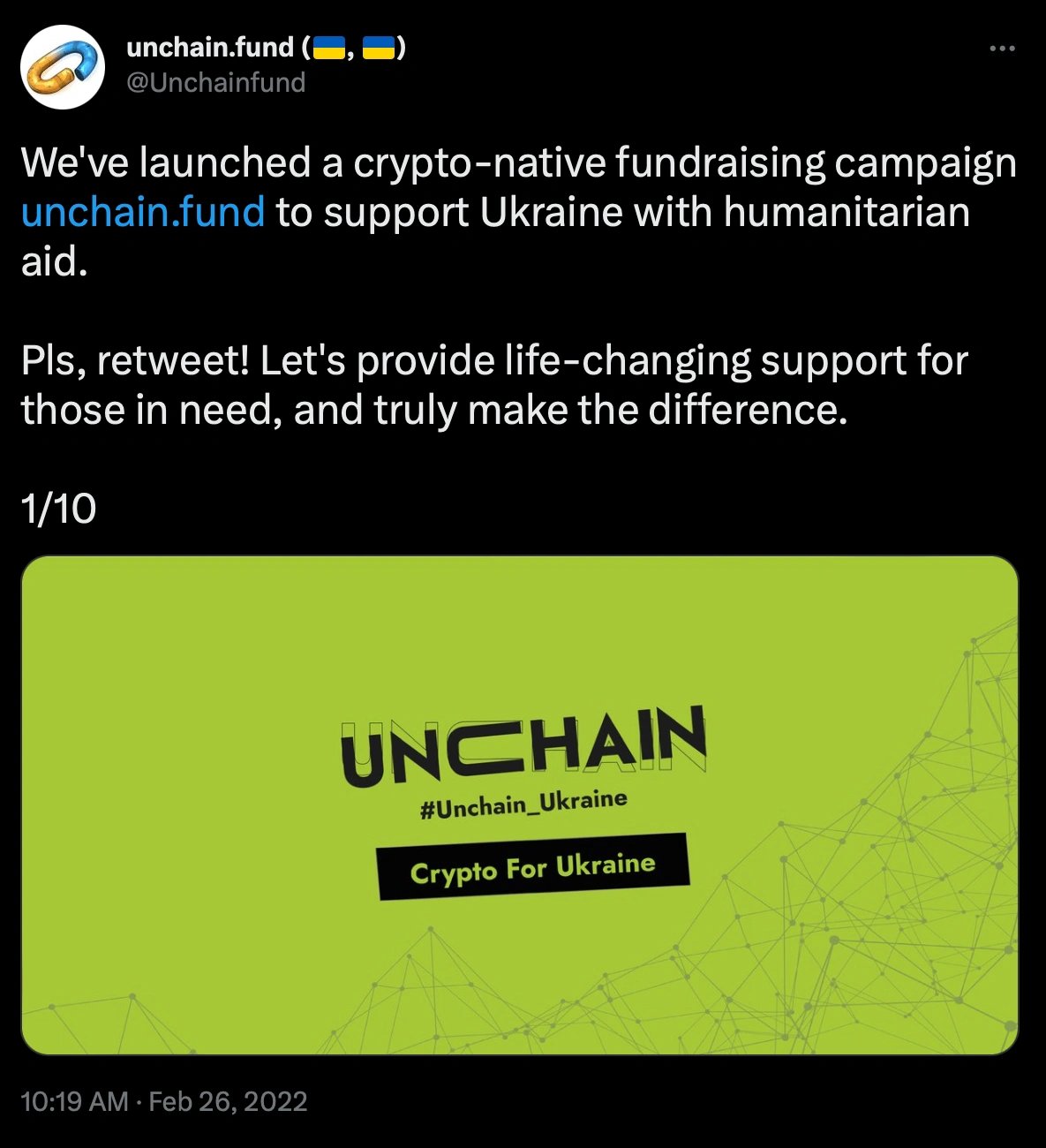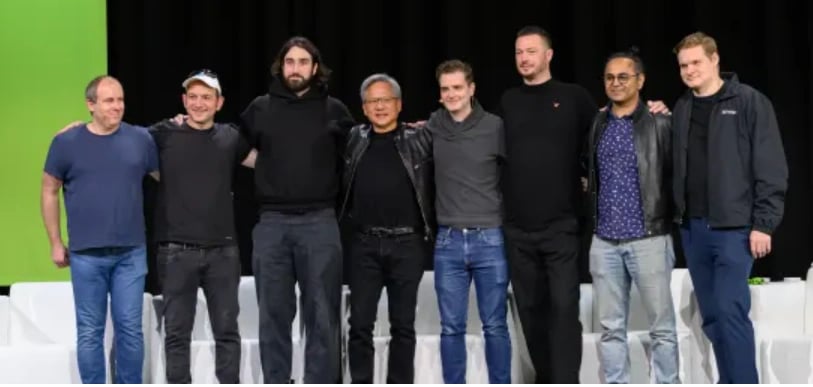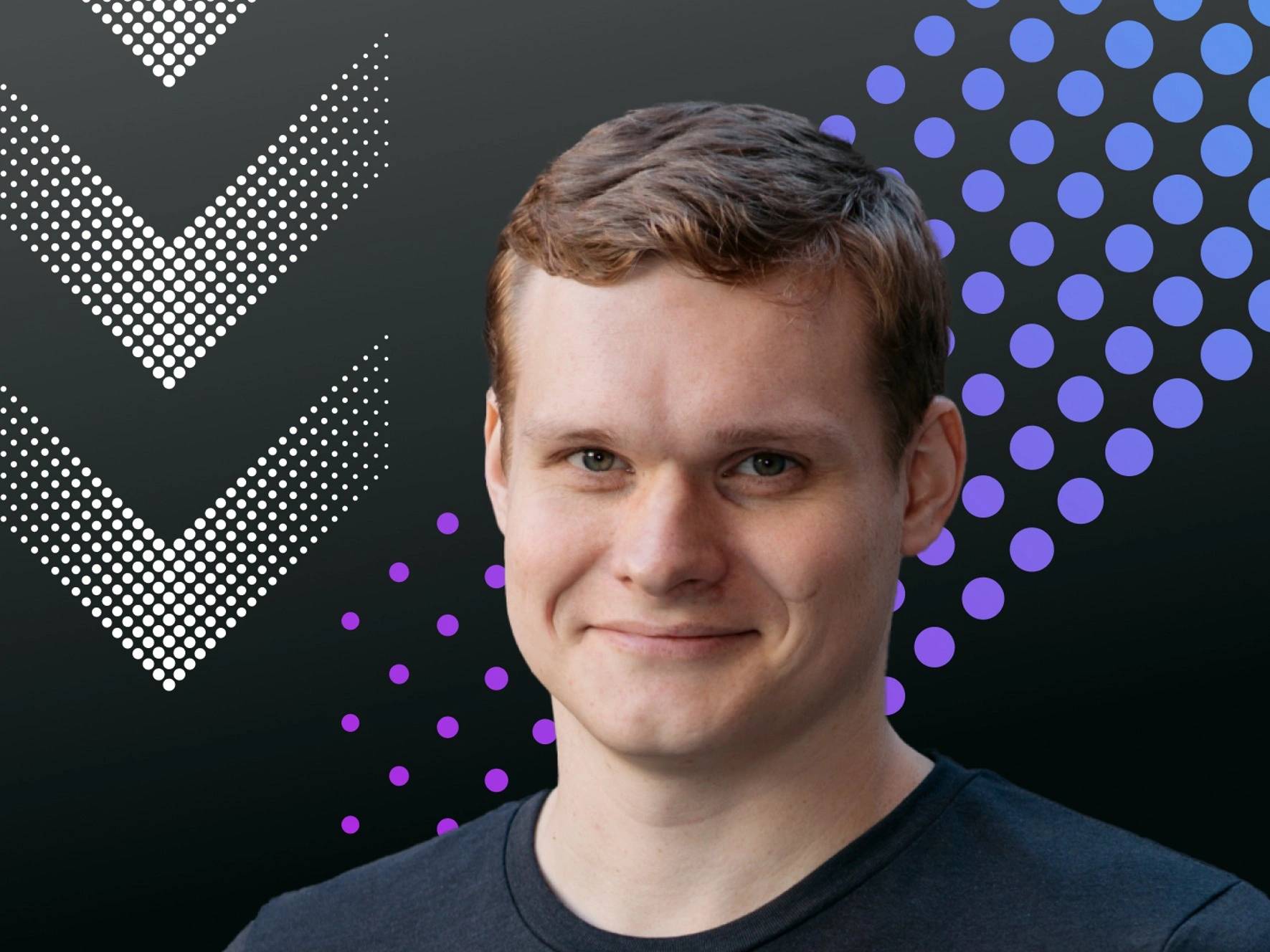위키 구독하기
Share wiki
Bookmark
Illia Polosukhin
0%
Illia Polosukhin
일리아 폴로수킨은 인공지능 연구가이자 소프트웨어 엔지니어로, 레이어 1 블록체인 프로토콜인 NEAR 프로토콜의 설립자로 가장 잘 알려져 있습니다. NEAR 프로토콜은 탈중앙화 애플리케이션과 스마트 계약의 생성 및 실행을 가능하게 합니다. 그는 또한 NEAR 재단의 CEO입니다. [1][14]
초기 생애 및 교육
폴로수킨은 국립 기술 대학교 "하르키우 폴리테크닉 연구소"에서 응용 수학 및 컴퓨터 과학 석사 학위를 받았으며, 이 기관에서 학부 과정을 마쳤습니다.[1]
그는 러시아 과학 소설 문학 팬이며, 특히 하인라인과 아시모프의 작품을 즐겨 읽습니다. [4]
경력
그는 Salford Systems에서 소프트웨어 엔지니어로 경력을 시작했으며, 그곳에서 빅 데이터 예측 분석, 텍스트 마이닝, 지리 마이닝을 위한 새로운 도구 개발 및 기존 Salford Predictive Miner 툴킷 개선을 담당했습니다. [1]
이후 Google Research에서 Polosukhin은 딥 러닝 및 자연어 이해에 중점을 둔 연구팀을 관리했습니다. 그는 또한 TensorFlow (특히 SKFlow라고도 하는 TF.Learn)에서 작업했습니다. [1]
NEAR 프로토콜
2017년 6월, Illia Polosukhin은 Alexander Skidanov와 함께 NEAR를 공동 창립했습니다. 원래 이름은 "Near.ai"였습니다. NEAR에 대한 아이디어는 Illia가 고등학교와 대학교 시절 프로그래밍 대회에 참가하면서 시작되었습니다. [4][15]
"제가 자랑스러워하는 것은 무언가를 시작하는 것이 아니라, 그것이 무엇이 될 수 있는지에 대한 비전을 실행하는 것입니다. 그것이 제가 자랑스러워하는 부분입니다."
처음에 NEAR 프로토콜은 블록체인과 관련이 없었고, 오직 AI와 관련이 있었습니다.
"순전히 AI였습니다. AI 작업을 하면서 많은 것을 시도했지만, 특별히 잘 되는 것은 없었습니다. 지금의 일부 회사들처럼 모델을 훈련할 수 있는 수억 달러 상당의 하드웨어가 없었습니다. 하지만 저희에게는 크라우드소싱 시스템이 있었습니다.
전 세계의 컴퓨터 과학 학생들을 찾는 시스템이었습니다. 중국, 러시아, 우크라이나, 폴란드 등 학생들의 형편이 어려운 국가에서 온 학생들이 저희를 위해 거의 푼돈으로 일했습니다. 그래서 그들에게 돈을 지불해야 했습니다. 전통적인 금융 시스템을 통해서는 돈을 보내기가 정말 어려웠습니다. 바로 그 지점에서 블록체인이 등장했습니다." - Illia는 NEAR가 블록체인으로 나아간 여정을 설명했습니다. [9]
팀은 애플리케이션을 구축할 적합한 플랫폼을 찾기 위해 스마트 계약, 암호화폐 및 블록체인 기술에 대한 연구에 몰두했습니다. 그러나 그들은 자신들의 요구 사항을 충족하는 플랫폼을 찾을 수 없었고, 원하는 요구 사항을 충족하기 위해 NEAR 프로토콜을 개발하게 되었습니다. [15]
NEAR 프로토콜이 단기간에 성장한 방법에 대해 Illia는 다르게 행동하고 개발자를 위한 환경을 조성하는 것을 강조했습니다.
"저희는 몇 가지를 매우 다르게 했습니다. 우선, 약 300개의 블록체인 프로젝트와 이야기를 나눴습니다. 말 그대로 그들과 이야기를 나누면서 어떤 문제가 있는지 물었습니다. 성장에 어떤 어려움이 있는지 물었습니다. 그래서 블록체인의 제품 측면에 대해 매우 잘 이해하고 있었습니다.
그리고 실제로 개발자 환경을 먼저 구축했습니다. 저희는 그것을 Dev Node라고 불렀습니다. Near의 첫 번째 앱은 2018년 12월에 저희 팀의 내부 해커톤에서 만들어졌습니다. 저희 팀의 일부는 개발자 경험에 바로 집중하기 시작했습니다. 모든 것이 완료될 때까지 기다릴 필요가 없었습니다. 이미 구축하고 반복할 수 있는 환경이 있었습니다. 저희는 5개의 다른 합의와 3개의 다른 차트 디자인을 구현했습니다. 저희는 다른 것들을 시도하고, 구현하고, 그것들이 어떻게 작동하는지 확인했습니다." [9]
NEAR 재단
2023년 11월 7일, 일리야 폴로수킨은 NEAR Collective의 미션을 지원하는 스위스 기반 비영리 단체인 NEAR 재단의 CEO로 임명되었습니다. 그의 역할은 NEAR 오픈 웹 생태계의 성장을 감독하고 NEAR에서 구축하는 팀들이 공통 비전을 향해 협력하도록 안내하는 것입니다. [8][12]
"NEAR 재단에 공식적으로 합류하여 오픈 웹이라는 공동의 비전을 향해 생태계와 계속 협력하게 되어 영광스럽고 기쁩니다."라고 일리야 폴로수킨은 그의 새로운 역할에 대해 말했습니다. "분산형 생태계를 효과적으로 조정하려면 많은 반복과 실험이 필요하며 NEAR는 처음부터 이 프로세스를 개선하기 위해 노력해 왔습니다. 공유된 진화의 다음 단계가 각자의 수직적 구조를 더 빠르게 구축하고 보다 효율적으로 협력하는 데 도움이 될 것이라고 믿습니다." - 일리야는 임명 기간 동안 말했습니다.[10]
2023년 11월 8일, NEAR 재단은 NEAR Data Availability(NEAR DA)를 출시했습니다. NEAR DA는 개발자가 롤업 비용을 줄이고 안정성을 향상시키는 동시에 이더리움의 보안을 유지하도록 돕습니다. [13]
블록체인 운영 체제 (BOS)
2023년 3월 2일, 일리야는 2023년 ETHDenver 컨퍼런스에서 NEAR 프로토콜을 위한 블록체인 운영 체제(BOS)를 소개했습니다. Polosukhin에 따르면 이 플랫폼은 암호화폐 거래소, 대체 불가능한 토큰 (NFT) 갤러리, 소셜 네트워크를 포함한 Web3 제품을 검색하고 탐색하기 위한 공통 레이어 역할을 합니다. [11]
"우리는 단순히 블록체인이 되는 것에서 벗어나 모든 블록체인을 사용할 수 있도록 하는 블록체인 운영 체제가 되려고 합니다. Near 아래에서 이더리움 앱을 사용하거나 Canto 앱 등을 사용할 수 있습니다. 따라서 [Near] 프레젠테이션 레이어가 있지만 백엔드에서 스마트 계약은 모든 체인에 있을 수 있습니다. 그런 다음 미들웨어를 통해 모든 것을 연결하여 경험을 통합할 것입니다." - 그는 설명했습니다.[12]
NEAR 토큰
$NEAR는 NEAR 프로토콜에서 사용되는 기본 토큰입니다. 이 토큰은 트랜잭션 수수료 지불 및 스토리지에 사용되며, 보유자는 트랜잭션을 검증하고 네트워크 합의에 도달하기 위해 스테이킹할 수 있습니다. [13]
NEAR 토큰은 네트워크 보안을 강화하고, 트랜잭션 처리 및 데이터 저장에 사용되는 회계 단위를 제공하며, 교환 매개체 역할을 합니다. [14]
투자
폴로수킨은 Clear Street, 3Box, Kurtosis, ClayStack, Syndicate, KYVE, SEDA, Datrics, 1inch, Sitehop, Luda 등 여러 회사에 투자했습니다. [2]
UnChain 펀드
일리야 폴로수킨은 러시아의 침략에 맞서 우크라이나를 지원하기 위한 암호화폐 모금 활동을 주도했습니다. 그와 다른 우크라이나 암호화폐 전문가들은 Unchain 펀드를 설립하여 거의 7백만 달러의 암호화폐 기부금을 모금했습니다.[5][6]
펀드가 기부금을 받으면 우크라이나 내에서 여전히 운영 중인 현지 암호화폐 거래소를 통해 현지 법정 화폐로 전환합니다. 전환 후 우크라이나에 기반을 둔 Unchain 펀드의 자원봉사자들은 필수품을 구매하여 분쟁 지역에 갇히거나 집을 비워야 했던 민간인들에게 배포합니다.[7][9]
"완전한 투명성을 위해 신뢰할 수 있는 기관 및 사례에 대한 완전한 커뮤니티 주도 심사 이니셔티브를 운영하고 있으며, 우리 모두가 집단적으로 자금을 지원할 것입니다. 즉, 귀하는 프로세스 및 의사 결정에 적극적으로 참여할 수 있습니다." - UnChain 펀드
Unchain 펀드는 NEAR, Ethereum, Solana, Binance Smart Chain, Celo, Harmony, Polygon, Avalanche, Gnosis, Polkadot, IoTeX, Terra, Bitcoin 및 Moonbeam을 포함한 14개의 블록체인 네트워크에서 지원을 받고 기부금을 받습니다(다양한 암호화폐 형태로).[10]

Transformer 8
Polosukhin은 현재 유명한 2017년 논문 "Attention Is All You Need"를 Google 동료 7명과 공동 집필했으며, 이들은 총칭하여 "Transformer 8"로 알려지게 되었습니다. 그 중 7명은 2024년 3월 Nvidia의 연례 개발자 컨퍼런스에서 처음으로 함께 무대에 올랐으며, CEO Jensen Huang은 "오늘날 우리가 누리고 있는 모든 것은 그 순간으로 거슬러 올라갈 수 있습니다."라고 말했습니다. [16]

Polosukhin은 Google이 2018년부터 Google 번역에서 트랜스포머를 활용하기 시작하여 "대대적인 개선"을 이루었다고 말했습니다. 그러나 이 기술의 광범위한 대중적 사용은 OpenAI가 2022년 11월 ChatGPT를 출시할 때까지 이루어지지 않았습니다.
"OpenAI는 이것을 공개함으로써 잃을 것이 거의 없었습니다."라고 Polosukhin은 CNBC에 말했습니다. "예를 들어, 다른 회사, 특히 상장 회사가 그것을 공개하고 거기에서 처음 묻는 질문이 부적절한 답변과 같았다면 뉴스에 나왔을 것입니다."
2017년 말에 형성적인 논문이 발표될 무렵, Polosukhin은 Google을 떠나 동료 소프트웨어 엔지니어 Alexander Skidanov와 함께 Near를 시작했습니다. 8명의 저자 모두 현재 Google을 떠났습니다. [16]
Google에 있는 동안 Polosukhin은 오픈 소스를 옹호했습니다.
"당시에는 그것을 공개하고 모든 사람이 그 위에 구축할 수 있도록 하는 것이 올바른 결정이었습니다."라고 그는 말했습니다.
Near에서 Polosukhin은 그가 사용자 소유 AI라고 부르는 "사용자의 개인 정보 보호 및 주권을 최적화하는" 데 집중하고 있습니다. [16]
잘못된 내용이 있나요?
